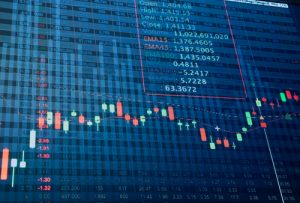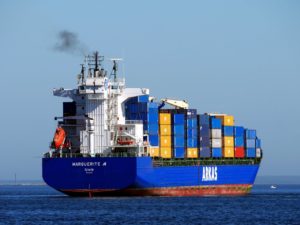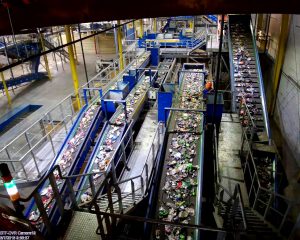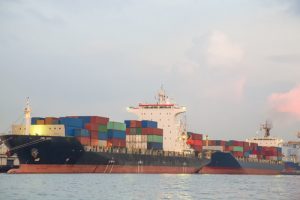 An outreach campaign sees success in boosting plastic bottle recycling in North Carolina, and a major city decides not to pursue bag fees.
An outreach campaign sees success in boosting plastic bottle recycling in North Carolina, and a major city decides not to pursue bag fees.

 An outreach campaign sees success in boosting plastic bottle recycling in North Carolina, and a major city decides not to pursue bag fees.
An outreach campaign sees success in boosting plastic bottle recycling in North Carolina, and a major city decides not to pursue bag fees.
 Recycling processors report that early September pricing for recovered plastic packaging rose slightly over August levels.
Recycling processors report that early September pricing for recovered plastic packaging rose slightly over August levels.
 The Recycling Partnership provides some tips on how to weather the upcoming ban, and ISRI says meeting a 0.3 percent contamination limit is impossible.
The Recycling Partnership provides some tips on how to weather the upcoming ban, and ISRI says meeting a 0.3 percent contamination limit is impossible.
 Last month, readers were drawn to content about a much-publicized plastics recovery facility suspending its operations and a beverage company’s interest in supporting recycling infrastructure.
Last month, readers were drawn to content about a much-publicized plastics recovery facility suspending its operations and a beverage company’s interest in supporting recycling infrastructure.
 Minneapolis tries a new approach to tackle single-use plastic bags, and the National Park Service ends its ban on sales of bottled water.
Minneapolis tries a new approach to tackle single-use plastic bags, and the National Park Service ends its ban on sales of bottled water.
 Yukon territory adds milk jugs and bottles to its deposit program, and the Container Recycling Institute organizes an art installation to raise awareness about marine debris.
Yukon territory adds milk jugs and bottles to its deposit program, and the Container Recycling Institute organizes an art installation to raise awareness about marine debris.
 Another container redemption center shutters in Connecticut, and an Oregon company inks a deal to supply its styrene monomer extracted from recycled polystyrene.
Another container redemption center shutters in Connecticut, and an Oregon company inks a deal to supply its styrene monomer extracted from recycled polystyrene.
 The Closed Loop Fund invests in end markets for often-landfilled mixed plastics, and a chemical company develops recyclable films for making food pouches.
The Closed Loop Fund invests in end markets for often-landfilled mixed plastics, and a chemical company develops recyclable films for making food pouches.
 An environmental group leader in Hong Kong raises concerns about China’s proposed import prohibition, and an agricultural plastics recycling program finds success in Minnesota.
An environmental group leader in Hong Kong raises concerns about China’s proposed import prohibition, and an agricultural plastics recycling program finds success in Minnesota.
 Trade and technology stories grabbed our readers’ interest in July, particularly China’s announcement of a ban on recovered plastics imports.
Trade and technology stories grabbed our readers’ interest in July, particularly China’s announcement of a ban on recovered plastics imports.
